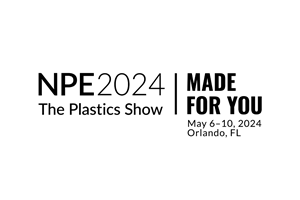Roller-Coaster History For Early Blow Molder
The history of Borse Plastics Products, an extrusion blow molder founded in 1963, reads like that of many other trailblazers in this process.
The history of Borse Plastics Products, an extrusion blow molder founded in 1963, reads like that of many other trailblazers in this process. Borse was sold in 1984, repurchased by the same owners in 1989, and sold again in 1997. Today, it remains one of the main businesses of The Plastics Group, a private investment company. Borse is one example of why very few original names of blow molders remain from the 1950s and ’60s.
A fast start
Borse was started in Lyons, Ill., by brothers Tony and Bob Borse, who originally made patterns for castings and molds. The brothers, who later moved to Willowbrook, Ill., got into blow molding of ornamental, seasonal, and holiday items in the late 1960s and later expanded into office furniture and parts for cars and heavy trucks. Sales climbed to $10 million by 1984 when Tony Borse decided to sell the company to Kuhlman Corp. in Troy, Mich., a specialist in electrical transformers.
Under Kuhlman, which at the time was expanding into blow molded fuel tanks, Borse did not thrive and its sales plummeted by half. Kuhlman sold the company back to Tony Borse in 1989 and the company underwent a major turnaround under new president and CEO Brian Beth. Borse rekindled its relationships with its old customer base in heavy truck parts, auto bumpers, and HVAC ducts and also expanded into parts made of ABS, polycarbonate, and PPO alloys. “We regained our reputation with highly engineered products and diversified our customer base,” says Beth.
Borse’s success translated into a huge revenue gain, topping $16 million annually by 1997. The company’s strong growth made it a target of investment companies, and Chicago-based private-equity firm Madison Capital Partners bought the company in 1997. Madison combined Borse with another processing company it owned, Pawnee Rotational Molding in Maple Plain, Minn., to create a new company called The Plastics Group. In 1998, two more operations joined the group—Wedco Molded Products, a blow molder and rotomolder in Boucherville, Que., and Fremont Plastics Products, an industrial blow molder in Fremont, Ohio. In 2000, Madison Capital sold the whole group to William Blair Capital, a Chicago investment banking firm. Last year, the group’s sales hit $100 million.
Beth says that over the years Borse’s diversification and broad range of services made it stand out from the competition. The trends in the late 1980s and 1990s were toward “value-added services” and a “systems approach,” meaning that a company needed to bring more to the table than just ability to mold parts. Today, Borse provides broader services such as product design, sophisticated secondary operations, and direct order fulfillment. “In some cases today, molding is less than half of what we provide to a customer,” explains Beth.
Customers get more savvy
Another big change for Borse is today’s more sophisticated customer base, which is intensely cost-driven. “We’ve gone from serving entrepreneurs that brought us their napkin sketches to strictly Fortune 1000 companies with high-volume orders,” explains Beth. Today’s customers include the likes of GM’s Saturn Div., Rubbermaid’s Office Products Div., Freightliner, and Magna International. “With the quality systems and engineering services we provide, it’s hard to justify dealing with smaller companies.” Beth sees industry overcapacity driving more intense competition than ever before in Borse’s key markets, such as automotive and heavy trucks.
Except for new developments in controls and electronics, the blow molding process has not significantly changed since the early days, according to Beth. The company stayed ahead of the curve in technology, particularly in adopting engineering resins. Borse saw opportunities in large panels blow molded of PPO, PC, and ABS. It also leveraged its expertise in big machines with up to 50-lb accumulator heads.
Today, a more pressing challenge than in the past is attracting and retaining skilled workers. The firm makes significant investments in training, says Beth, and holding on to employees can be difficult.
Related Content
NPE2024 Wrap-Up: Sustainability Dominates Show Floor News
Across all process types, sustainability was a big theme at NPE2024. But there was plenty to see in automation and artificial intelligence as well.
Read MoreBreaking News From NPE2024
Here is a firsthand report of news in injection molding, extrusion, blow molding and recycling not previously covered.
Read MoreBlow Molder with a Mission: CKS Packaging Shares Gains Of Its Phenomenal Growth
From three machines in 1986 to 27 plants nationwide today, this family-owned processor has prospered through unwavering customer service, committed employees and dedicated service to its community.
Read MoreProcessing Megatrends Drive New Product Developments at NPE2024
It’s all about sustainability and the circular economy, and it will be on display in Orlando across all the major processes. But there will be plenty to see in automation, AI and machine learning as well.
Read MoreRead Next
Lead the Conversation, Change the Conversation
Coverage of single-use plastics can be both misleading and demoralizing. Here are 10 tips for changing the perception of the plastics industry at your company and in your community.
Read MoreFor PLASTICS' CEO Seaholm, NPE to Shine Light on Sustainability Successes
With advocacy, communication and sustainability as three main pillars, Seaholm leads a trade association to NPE that ‘is more active today than we have ever been.’
Read More



















